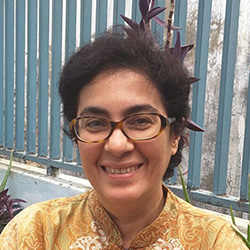Communities want collaboration, customary law
For centuries, communities in Maluku, in eastern Indonesia, tapped wealth from their forests without any kind of restrictions beyond adat, or customary rules. From the forests, they collected timber for their houses, harvested sago and palm sugar, hunted wild pigs, and picked up fuelwood for cooking.
Throughout multiple changes in Indonesian forestry law from the 1960s to today, adat has remained an unofficial guiding principle for forest management in Maluku, with sustainable results for forests. But now as the demand for land increases under pressures of population growth, migration and local development, adat laws and the forests they sustain are under threat.
While community rights to use and manage forests are enshrined in Forestry Law No. 41 of 1999, the largely informal character of adat means it is difficult to have customary rights to tenure recognized under national law.
And without secure tenure, communities are at risk of losing their customary forests to expanding housing, roads and farmland, or to private companies in the plantation, timber or mining industries. This has implications not only for the forests, but for the communities who still depend them for their livelihoods.
According to new research led by the Center for International Forestry Research (CIFOR), collaborative adat management is still the preferred scenario for communities in Maluku, with an eye to sustaining people and forests into the future.
The new findings have emerged as part of the Global Comparative Study on Forest Tenure Reform, which aims to to investigate how forest tenure reforms are implemented, and what the outcomes are for tenure security. Simultaneous site studies are underway in Indonesia, Peru and Uganda.
In Indonesia, three sites – Maluku, Lampung and Kalimantan – were selected to give a comprehensive understanding of tenure reform in the country. Maluku was chosen because of its strong adat forest management systems, as found by an earlier CIFOR study from 2010-2014, which provided baseline data for the latest research. Meanwhile, Lampung has implemented social forestry for about a decade, and Kalimantan has just begun to introduce tenure reforms.
The study in Maluku aimed to improve understanding of the factors affecting community tenure security in order to generate action plans for securing the rights of local communities and improving the livelihood outcomes of acceptable scenarios.
This topic is in discussion at the 2017 Tenure Conference from 25-27 October in Jakarta, Indonesia.








